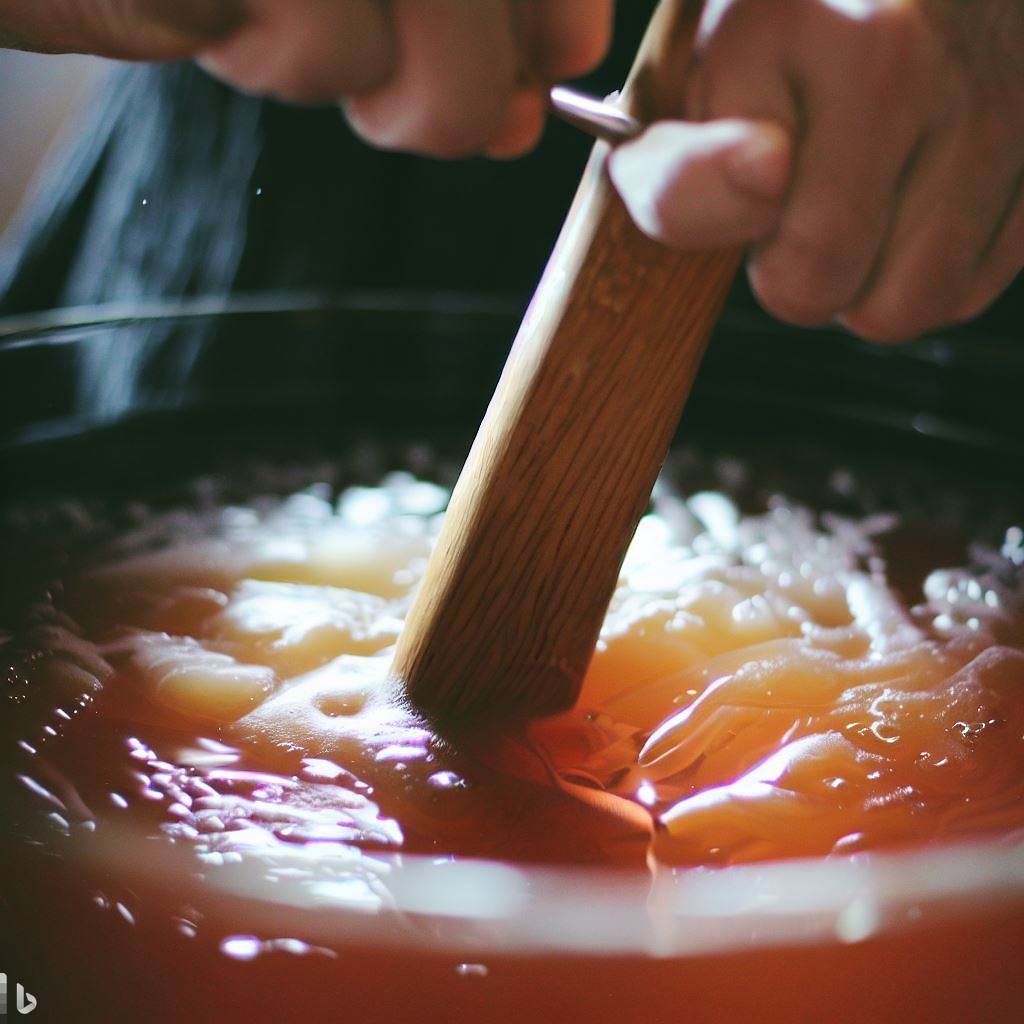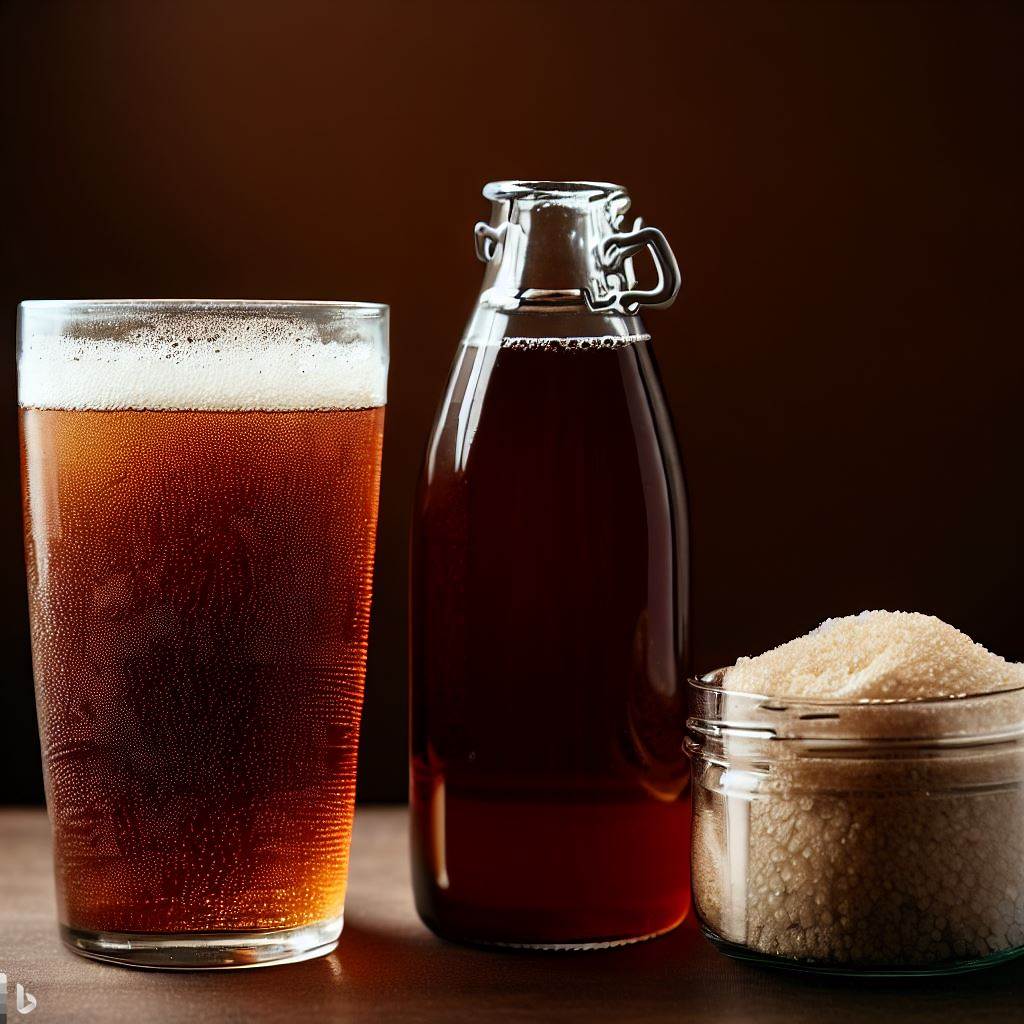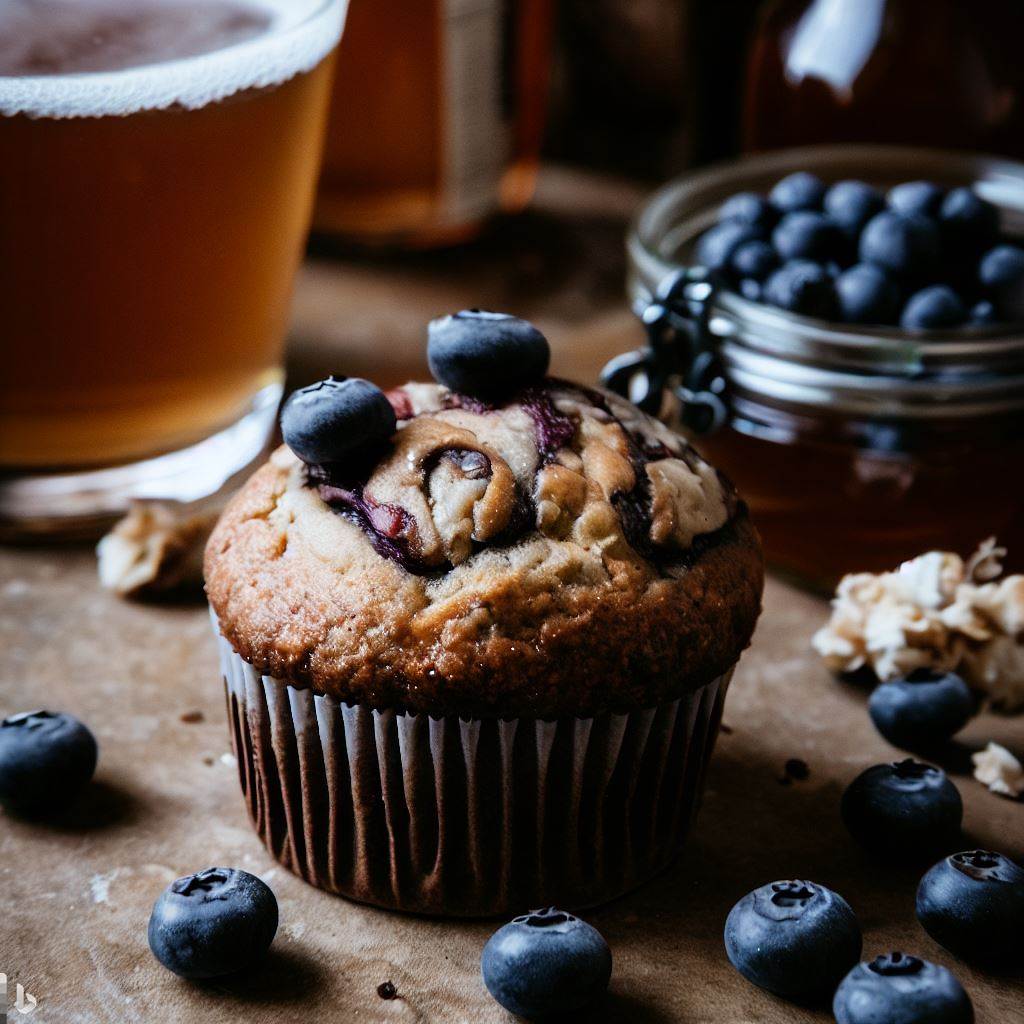Good day, health enthusiasts! Today, we’re diving deep into the world of kombucha, a fizzy, fermented beverage that has taken the health world by storm. Despite its common usage, there’s a whirlwind of myths and misunderstandings surrounding this ancient drink. The roots of this unique brew trace back to ancient China where it was originally known as “The Tea of Immortality”. But What about Kombucha Myths Debunked? We’ll cover that shortly!
The modern world has seen a Kombucha craze, with countless brands on the market, each offering unique flavors and touting a range of health benefits. But what is the truth behind these claims? Let’s dive in to explore the world of Kombucha and separate fact from fiction.
Unraveling the Kombucha Conundrum: Kombucha Myths and Misunderstandings
Making Kombucha involves a simple yet fascinating process. It begins with brewing a pot of sweetened tea (typically black or green tea), and adding a symbiotic culture of bacteria and yeast, known as a SCOBY. The mixture is then left to ferment at room temperature for a period ranging from a few days to several weeks.
The fermentation process results in a beverage rich in organic acids, vitamins, and a range of other compounds, and gives Kombucha its characteristic tangy flavor. The SCOBY consumes the sugar in the tea, creating an environment that promotes the growth of beneficial bacteria and yeast.
The Health Benefits of Kombucha
Kombucha has been praised for a variety of health benefits, most of which are linked to the probiotics produced during fermentation. These beneficial bacteria can help promote a healthy gut microbiome, potentially aiding in digestion and even boosting immune function.
Kombucha is also rich in antioxidants, which are substances that can help fight off potentially harmful molecules in the body known as free radicals. Some studies suggest that the antioxidants in Kombucha, particularly when made from green tea, may help reduce inflammation and fight against disease.
Despite its benefits, Kombucha has been surrounded by numerous myths. Some claim it as a panacea for all health ailments, while others fear it due to misunderstandings about its microbial content. Kombucha Myths debunked: Let’s debunk these misconceptions and shed light on the truth about kombucha.
Myth 1: Kombucha is Only for Health Gurus

Firstly, let’s dispel the notion that kombucha is exclusively for health gurus or hippies. In reality, kombucha is a refreshing, bubbly beverage that anyone can enjoy. Its tangy flavor and potential health benefits make it an appealing alternative to sugary sodas and artificial drinks. So, whether you’re a fitness fanatic or just someone looking for a healthier beverage option, kombucha is worth a try.
Myth 2: Kombucha is High in Sugar
Transitioning to our next myth, many people believe that all kombucha is high in sugar. While it’s true that sugar is used in the fermentation process, not all kombucha contains residual sugar. The sugar serves as food for the beneficial bacteria and yeast, and if brewed correctly, all sugars are consumed during the process, leaving no residual sugar in the final product. Learn more detail on Kombucha nutrition facts.
Myth 3: Kombucha Must be Refrigerated
Another common misunderstanding is that kombucha must always be refrigerated. This is only true if the kombucha still contains sugar. The fermentation process, which gives kombucha its unique properties, occurs in the presence of sugar and a warm environment. If a kombucha has residual sugars and live cultures, it must be kept cold to prevent further fermentation. However, sugar-free kombucha does not require refrigeration.
Myth 4: Kombucha is High in Caffeine
Next up, the myth that kombucha is high in caffeine. While kombucha is made from tea, the fermentation process significantly reduces the caffeine content. The final product is typically low in caffeine, making it a suitable choice for those looking to limit their caffeine intake.
Myth 5: Kombucha is High in Alcohol
Lastly, let’s tackle the myth that kombucha is high in alcohol. It’s true that the fermentation process produces a small amount of alcohol. However, commercial kombucha brands often ensure that the alcohol content is below 0.5%, the legal limit for a drink to be considered non-alcoholic.
Myth 6: Kombucha is a Miracle Cure-all
While Kombucha has beneficial properties, it’s not a magic potion that can cure all diseases. Like any other health food, it plays a supporting role in a balanced diet.
Myth 7: Kombucha can’t Cause Harm
Kombucha can indeed cause harm if not properly brewed and stored. Homemade Kombucha, in particular, can carry a risk of contamination if not prepared in a clean environment.
Myth 8: Kombucha Contains ‘Unhealthy’ Bacteria
The bacteria in Kombucha are generally probiotics that can support gut health. However, improper brewing techniques can lead to the growth of harmful bacteria.

Understanding the Science Behind Kombucha
Understanding Kombucha’s benefits requires an understanding of its biology and chemistry. The fermentation process encourages the growth of beneficial bacteria and yeast, which consume the sugar in the tea and produce organic acids, enzymes, and vitamins.
When we consume Kombucha, these probiotics can help promote a healthy balance of gut flora, while the organic acids and antioxidants may contribute to overall health.
Conclusion and FAQs
After this journey into the world of Kombucha, we hope that you feel better equipped to separate myth from reality when it comes to this popular health beverage. Remember, while Kombucha does have potential health benefits, it is not a magic potion and should be consumed as part of a balanced diet.
FAQs – Kombucha Myths Debunked!
- Is Kombucha alcoholic?
- Kombucha contains a very small amount of alcohol due to the fermentation process, typically less than 0.5%.
- Can Kombucha help with weight loss?
- While some claim that Kombucha can aid in weight loss, more research is needed to confirm this. It’s best to focus on a balanced diet and regular exercise for weight management.
- Is it safe to brew Kombucha at home?
- Yes, with proper sanitation and brewing practices, it is safe to brew Kombucha at home.
- Is Kombucha safe for everyone to consume?
- While generally safe for most people, those with weakened immune systems or certain health conditions should consult a healthcare provider before consuming Kombucha.
- How often should I drink Kombucha?
- The answer varies based on individual tolerance and preferences. For most people, a serving per day is adequate.
Final Thoughts
Finally, kombucha is a versatile, health-conscious beverage that’s been misunderstood due to various myths and misconceptions. By debunking these myths, we hope to encourage more people to explore the potential benefits of this ancient drink.
Now that we’ve debunked these common kombucha myths, we’d love to hear from you. What other kombucha myths have you come across? Let’s continue the conversation in the comments below!
Thanks for reading on Kombucha Myths Debunked. Read on to other GMK Blog Posts:







